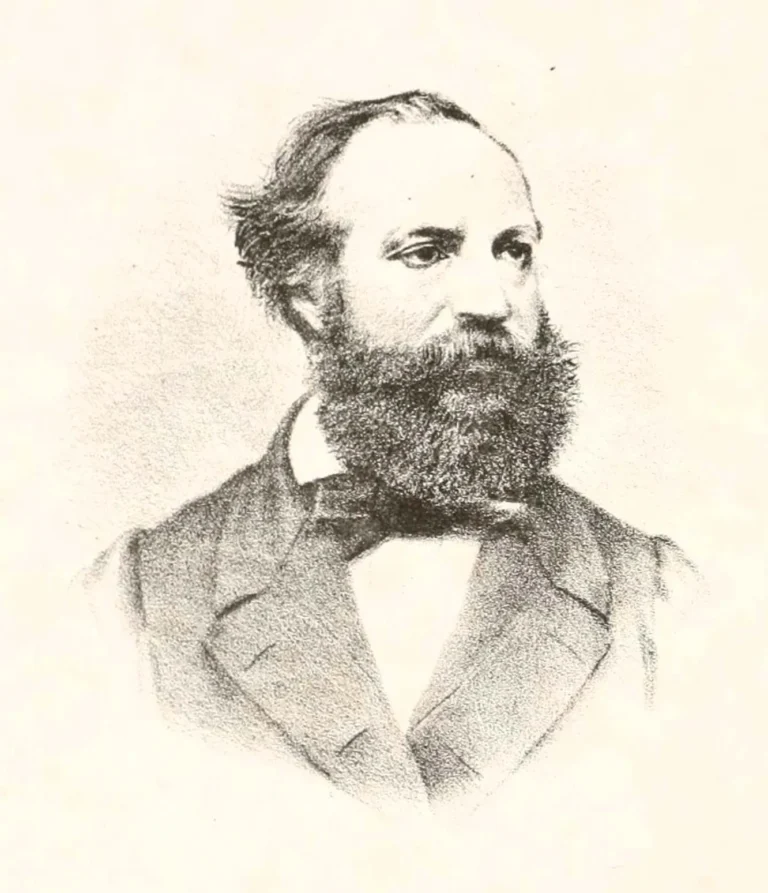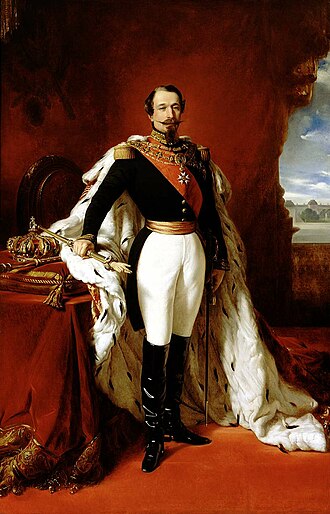Felice Orsini: the patriot attacker who did Cavour a great favor

The difference between a modern revolutionary (so to speak) and an ancient one can be shown by the figure of Felice Orsini, the Italian patriot who made an attempt on the life of Napoleon III, but, paradoxically, helped him convince himself to help the Italian cause.
Orso Teobaldo Felice Orsini was born in 1819 in Meldola, a town in the Romagna region of the Papal State, on the first slopes of the Forlì Apennines, a city that was the birthplace of significant figures of the Italian Risorgimento, such as Piero Maroncelli and Aurelio Saffi, important for its markets and for the production and trade of silk. Orsini was a strong character, son of Andrea, a former Napoleonic officer and carbonaro, sent into exile and who had entrusted him to his brother Orso, who raised him in Imola as if he were his own son.
The writer and gastronome Pellegrino Artusi (1820-1911) met him in Bologna, at the time just a shy young man from Romagna from Forlimpopoli, who would remember him as an imprudent young man, always intent on talking about politics and conspiracies, and would associate him with one of the recipes from his famous Science in the Kitchen .
After graduating and taking up the profession of lawyer, he participated in the Romagna riots of August 1843. Subsequently he founded the new secret society "Italian Conspiracy of the Sons of Death", an activity for which he was sentenced to life imprisonment, to be served in the fort pontifical of Civita Castellana, in upper Lazio, but was freed in 1848.
Returning to Florence, on 28 June 1848 he married Assunta Laurenzi. Follower of Giuseppe Mazzini, he carried out revolutionary activities in the State of the Church and in the Grand Duchy of Tuscany. At the beginning of 1849 Orsini was elected deputy to the Constituent Assembly of the Roman Republic, in the constituency of the province of Forlì, but the intervention of the French army in support of the Pope forced him to flee, and for this he never forgave the head of the French government Napoleon III.
In March 1850 he settled in Nice, a city at the time included in the Kingdom of Sardinia, where he opened a cover business, the "Monti & Orsini" company, dedicated to the sale of hemp produced and traded by his uncle Orso, and which in any case profited him Well.
The quiet life of a merchant did not suit him: he accepted Mazzini's request to lead, in September 1853, an insurrectional attempt in the area of Sarzana and Massa, in Lunigiana. The action failed in the bud; Orsini then decided to move to London under the protection of his master, leaving his family in Nice.
In 1854 he prepared two more insurrectional attempts, in the Mazzinian style, in Lunigiana and Valtellina, both without success. During a clandestine trip to the Habsburg Empire as a Mazzinian agent, he was arrested in Hungary on 17 December 1854 and locked up in the Austrian prisons of the Castle of San Giorgio in Mantua. Orsini was the protagonist of a daring escape, on the night between 29 and 30 March 1856, thanks to the help of the wealthy Emma Siegmund, who managed to bribe the jailers and accompany him in a carriage to Genoa, from where he embarked for the 'England.
There Orsini realized that he had now become famous in that country and decided to settle in London, accepting the generous offer of a publisher to write his memoirs which he published in the volumes Austrian Dungeons in Italy , of 1856, and Memoirs and Adventures of next year. Here he broke away from Mazzini and became a revolutionary independent of the master.
He decided to continue his conspiratorial activity by starting to organize the assassination of Napoleon III, with the ambitious – but illusory – objective of triggering a revolution in France that could also spread to Italy. Orsino then accused Napoleon of having betrayed the Italian cause with the repression of the Roman Republic. In his youth Napoleon III had been a member of the Carboneria, as was Felice's father, Andrea, who had also died in 1857 and at the time it was said that the Carboneria did not spare traitors. Three years earlier Napoleon had escaped Giovanni Pianori's attack.
Having reached Paris after having recruited other conspirators, including Giovanni Andrea Pieri from Lucca, the nobleman from Belluno Carlo Di Rudio and the Neapolitan Antonio Gomez, on the evening of 14 January 1858 at around 8.30 pm the small group managed to throw three bombs against the emperor's carriage, arriving amidst crowds at the entrance to the Opéra opera on rue Le Peletier to attend the performance of William Tell by Gioachino Rossini.
On the evening of January 14, Emperor Napoleon III and his wife, while traveling to the Opera House in Paris, were hit by numerous gunshots and bombs, but the "armored" carriage resisted the bombs and bullets. , but many soldiers and people are killed or injured.
The story of the trial of the conspirators on 14 January is widely followed in the city and Felice manages to become the protagonist. The letter written by Orsini to the emperor in favor of Italian independence, without ever asking for pardon, and the defense of the famous lawyer Jules Favre made a great impression on public opinion and on the Emperor. It seems that the ministers had to stay the hand of the Emperor, who wanted to pardon him Motu Proprio. The implicit reference to the Carboneria, to the betrayal of his mission and to the fact that, sooner or later, they would make him pay, must also have weighed on Napoleon.
The appeal, however, was rejected and the patriot from Romagna, together with his accomplice Giovanni Andrea Pieri, were executed on 13 March in Piazza della Roquette, in front of an immense crowd, and his last words before placing his neck to the executioner were " Long live Italy, Long live France”. The letter was also distributed in thousands of copies in Bologna.
«Until Italy is independent, the tranquility of Europe and yours will be nothing but a chimera. Your Majesty does not reject the supreme vote of a patriot on the path to the gallows: free my homeland and the blessings of 25 million citizens will follow it everywhere and forever." (from Felice Orsini's letter to Napoleon III)
On 21 July Napoleon III and Cavour met in Plombières les Bains and agreed on the moves that led to the birth of independent Italy. Felice Orsini was spiritually there.

Thanks to our Telegram channel you can stay updated on the publication of new Economic Scenarios articles.
The article Felice Orsini: the patriot attacker who did Cavour a great favor comes from Scenari Economici .
This is a machine translation of a post published on Scenari Economici at the URL https://scenarieconomici.it/felice-orsini-il-patriota-attentatore-che-fece-un-grande-favore-a-cavour/ on Wed, 25 Oct 2023 16:25:03 +0000.

